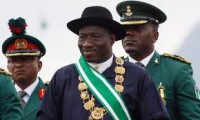
Deepening Democracy: In Nigeria, improving government accountability means paying politicians less
While the Global Commission report on Deepening Democracy provides insightful recommendations on strategies for improving electoral integrity, we must remember that elections are just one step in the democratic process. Certain precursors need to be made right in order to make the report’s recommended strategies achievable. Having lived in Nigeria and experienced the democratic process there, I am of the opinion that one vital measure needed to strengthen its nascent democracy is to drastically reduce the excessive financial incentives that accompany political positions. The quest for political leadership must be guided by a passion to lead and make changes. Sadly, these are noble incentives overshadowed by the “what is in for me?” mentality of personal gratification that has eaten deep into the fabric of the country’s political space.

Deepening Democracy in Europe: Participatory budgeting is a solution to the austerity vs democracy conundrum
In its mission statement the Global Commission on Elections, Democracy and Security points out that while elections are vital to democracy, on their own they are not sufficient. According to, “Deepening Democracy”, a recent report, elections also need integrity. They are right. But elections are insufficient in at least another respect too. Democracy is not limited to casting a ballot once every four or five years; the nature of democratic government also manifests itself in the period between elections. This is best exemplified by the current sovereign debt crisis in the Eurozone.









